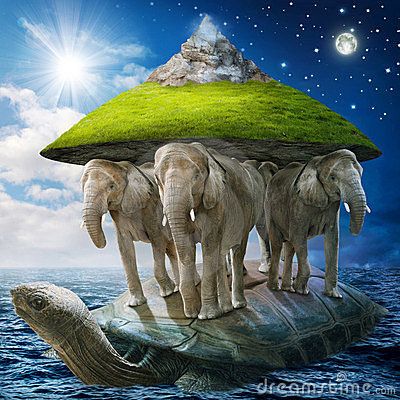Elephants and turtles: Difference between revisions
Jump to navigation
Jump to search
Amwelladmin (talk | contribs) No edit summary |
Amwelladmin (talk | contribs) No edit summary |
||
| Line 1: | Line 1: | ||
{{a|g| | {{a|g|[[File:Elephants and turtle.jpg|450px|thumb|center|The origins everything.]]}} | ||
[[File:Elephants and turtle.jpg|450px|thumb|center|The origins everything.]] | |||
A Hindu myth with a pretty obvious logical flaw that atheists like to think neatly demolishes the intellectual pretensions of organised religion — which it does — while not noticing now neatly it also demolishes the intellectual pretensions of secularists, lawyers, scientists and, well, ''atheists'' at the same time. | A Hindu myth with a pretty obvious logical flaw that atheists like to think neatly demolishes the intellectual pretensions of organised religion — which it does — while not noticing now neatly it also demolishes the intellectual pretensions of secularists, lawyers, scientists and, well, ''atheists'' at the same time. | ||
Revision as of 17:08, 8 December 2020

|
A Hindu myth with a pretty obvious logical flaw that atheists like to think neatly demolishes the intellectual pretensions of organised religion — which it does — while not noticing now neatly it also demolishes the intellectual pretensions of secularists, lawyers, scientists and, well, atheists at the same time.
For here is the problem, friends: Every good dictionary is circular. Not just the Hindu one. If Douglas Hofstadter is to be believed, that very circularity — reflexivity — is the special sauce.